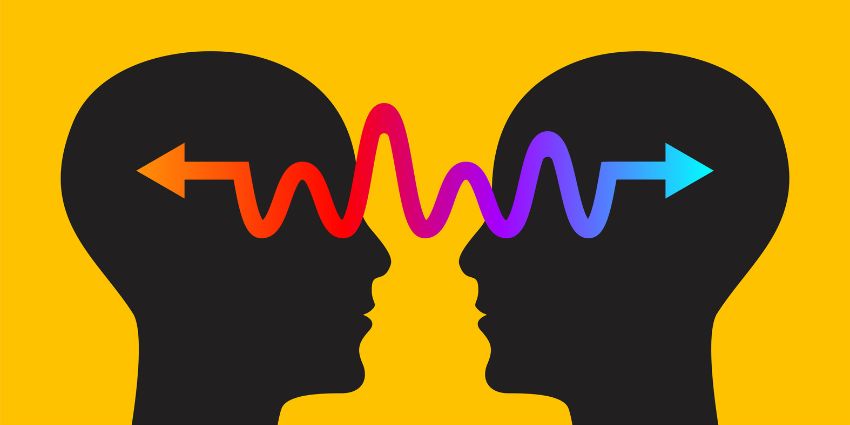Empathy statements are a crucial but often overlooked part of a strong customer experience. Living up to evolving customer expectations takes more than just an investment in speedy and convenient service. In today’s world, consumers are in search of more humanized interactions.
As artificial intelligence transforms the customer service landscape, buyers expect agents to set themselves apart from the bots with compassion, care, and empathy. One study found that 96% of consumers consider empathy essential to a service interaction.
While there’s more to showing empathy in customer service than saying the right words at the correct times, empathy statements can be a valuable tool. They serve as a reminder to customers that the agents they interact with understand and respect their needs.
Here’s your guide to some of the best empathy statements worth using in the contact center.
What are Empathy Statements for Customer Service?
Before we dive into some examples of effective empathy statements, let’s define what an “empathy statement” actually is. Empathy might seem simple, but it’s commonly confused with other ideas, like “sympathy” and “compassion.”
Empathy is essentially the ability a customer service representative has to step into the shoes of their customer or target audience. With empathy, agents show customers that they genuinely understand their feelings and concerns. Unfortunately, only 9% of contact center agents believe empathy is their greatest strength.
In a fast-paced customer service environment, it can be difficult to show empathy consistently. Many agents are under significant pressure to complete conversations as quickly as possible.
Empathy statements offer an easy way to demonstrate empathy without significantly increasing average handling times. These short but succinct statements show customers they’re the sole focus of the agent they’re speaking to.
Examples of Empathy Statements for Customer Service
Empathy statements can come in several forms and may be designed for specific use cases. Some words, such as “I’m glad to hear I’ve been helpful,” are ideal for the end of a customer service discussion. Others are designed to help strengthen relationships with audiences throughout each stage of their purchasing journey.
Here are just some examples of empathy statements that work for customer service teams:
1. “I’m sorry you had to experience this.”
Many customer service reps are reluctant to admit they or their business was responsible for a problem. However, apologizing to a customer doesn’t have to mean taking ownership of a mistake. Empathy statements can simply express that an agent is sorry a person is struggling. The statement above immediately acknowledges the problem is significant and helps diffuse tension.
2. “I can see how frustrating this must be.”
Some of the best empathy statements are effective because they help to prevent a problem from worsening. By the time a customer contacts a company in today’s self-service world, they’re likely to be frustrated and annoyed. They want to feel validated and heard. Acknowledging that the situation is frustrating, shows agents aren’t simply disregarding the emotions of customers.
3. “You’re right; this shouldn’t have happened.”
Empathy statements like this one work on two levels. First, they tell the customer something they want to hear: that they’re in the right. Secondly, they show customers the company believes there’s no excuse for a bad experience.
Telling customers that they’re right and that a problem shouldn’t have happened also tells them that you hold your business to a higher standard of service. This means they’re more likely to trust you again in the future.
4. “Here’s what I understand about the issue, am I right?”
Empathy isn’t just about resonating with a customer’s experiences; it’s about actively listening to and understanding their problem.
One of the best ways to ensure both customers and agents are on the same page is for agents to repeat the issue back to the customer. Empathy statements like the one above demonstrate the customer has the agent’s full attention and that they’re committed to understanding and resolving the issue.
5. “I appreciate you bringing this to our attention.”
Customers often dread contacting a customer service team for a range of reasons. Sometimes, they’re concerned the discussion will take too long.
Others believe their problem or concern will be belittled or disregarded. Letting your customers know you appreciate them bringing a problem to your attention shows a clear commitment to excellent customer experiences. It helps you to show your customers that you value their input.
6. “I know you’re busy, so I’ll try and resolve this as quickly as possible.”
One of the reasons many consumers have switched to using self-service tools in the modern world is the need for speed. People have limited time available to interact with service agents.
They want you to understand that their time is precious. Empathy statements like the one above show you respect your customer’s time. It also puts them at ease, letting them know you will work quickly on a solution.
7. “Can you give me a moment to figure this out for you?”
Even the most efficient employees may need a couple of minutes to solve a problem for a customer. Rather than just telling a client they will be put on hold, it’s worth asking if they have the time to wait for a resolution. This empathy statement shows customers their time is valued and allows them to request a call-back if necessary.
8. “I’d like to get my team involved to address this problem, is that ok?”
Sometimes, agents need extra help before they can address a problem. This is one of the reasons so many companies are unifying their UCaaS and CCaaS platforms. Many agents may need to collaborate with subject matter experts or other team members on common issues.
This empathy statement shows customers that agents aren’t just handing their problems off to someone else. It demonstrates a commitment to working with the right professionals to resolve the issue.
9. “I appreciate your patience.”
Not every issue has a quick resolution. Some customer problems take a while to resolve. When this happens, it’s crucial to remind customers that you value their time. Empathy statements like this one communicate that you’re not taking your customer’s time for granted.
10. “Has this resolved your problem?”
Excellent customer service reps don’t just address customer problems; they ensure the solution they provide delivers the right results. This empathy statement gives customers room to express whether they’re satisfied with the outcomes they’re given. It can also encourage customers to share helpful feedback that may improve future customer service interactions.
11. “Thank you for being so cooperative.”
It might sound simple, but empathy statements like this can be compelling. They remind customers that they’ve played a role in resolving an issue. By thanking customers for their cooperation, agents can improve consumers’ perception of their brand. The statement also highlights the importance of the relationship between the brand and its customer.
12. “Is there anything else I do for you?”
Finally, closing each conversation with an offer for additional help is a great way to show empathy. It demonstrates to customers that agents aren’t rushing to move on to the next call. When an employee asks a customer if there are any other issues they can resolve, they show them there’s no time limit on how helpful they will be.
The Core Components of Strong Empathy Statements
While great empathy statements can vary in the contact center, they generally include a few key components. The first is the use of “personal pronouns.” The words “I” and “You” form the foundations for a deeper human connection.
Other vital components to consider include:
- Active verbs: Using active verbs demonstrate a commitment to actively addressing a problem. For instance, “I will consult my team to resolve this” is far stronger as an empathy statement than “Our team will resolve this.”
- Authenticity: Customers don’t want approximations of empathy from service reps. They want to see genuine, authentic behavior. Using natural tones and less formal ways of speaking can help to make statements sound less like they come from a script.
- Curiosity: Curiosity can often be helpful in empathy statements, as it shows a commitment to understanding the customer and their concerns. Curiosity shows your customers that agents are willing to listen and get to the bottom of the problem.
- Clarity: Confirming an understanding of the problem can be helpful too. Active listening techniques such as repeating a customer’s words back to them help to improve understanding. They also make sure customers feel heard and valued.
- Reassurance: Strong empathy statements always reassure customers. They validate their emotions and help to put their mind at ease consistently. For instance, “I will resolve this problem as quickly as possible” is a reassuring statement.
The Benefits of Empathy in Customer Service
Using empathy statements in customer service is one of the easiest ways for agents to demonstrate an affinity with customers. Showing empathy helps to build trust in the contact center landscape, ensuring consumers feel heard and understood.
Empathy can also help to diffuse potentially difficult situations. Acknowledging a customer’s problems and responding with empathy helps reduce the frustration and anger a customer might feel. This leads to higher customer satisfaction scores and increased loyalty.
Empathy can even reduce customer churn by showing customers a brand is willing to do everything in its power to deliver a fantastic experience. It also helps agents to uncover potential problems faster and mitigate similar issues in the future.
However, empathy statements are just one tool in delivering an exceptional experience. Agents also need to ensure they’re listening to customers and showing compassion with a commitment to resolving issues. A comprehensive approach to empathy will help businesses separate themselves from the competition and retain more loyal customers.







